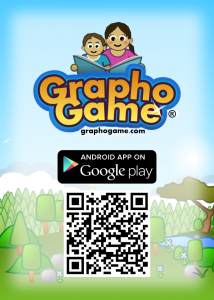PRESS RELEASE January 23, 2015
The Agora Center from the University of Jyväskylä exhibits its research results in educational games at the BETT 2015 exhibition in Excel, London on January 21-24. BETT is the world’s leading international event on learning technology, hosting about 25 000 expert visitors each year.
At BETT, the Agora Center specifically focuses on the newly published English demo of the GraphoGame, a literacy learning game that has been utilized nationally in Finland for years with remarkable results. The free-of-charge demo game is now available in Google Play. In addition to GraphoGame, the Agora Center is presenting results from FUN, a collaborative project between Finnish and American partners focusing on game-based learning of science and mathematics. The FUN project result video was launched during the BETT show in YouTube.
– Hundreds of thousands of children have learned how to read with the Finnish GraphoGame. We want to offer this efficient and fun learning possibility to all the children in the world, envisions Professor Heikki Lyytinen, developer of the game.
– Naturally, literacy instruction is language-based, and therefore we have a network of world-leading researchers to support us in developing new language versions.
In the UK, our collaborator professor Usha Goswami, Director of the Centre for Neuroscience in Education at the University of Cambridge, leads a project that looks at how developing phonological awareness through rime analogy using the GraphoGame can affect how children learn to read.
– We have received support from the Finnish Funding Agency for Innovation for development of the international GraphoGame and its distribution, tells Mikko Pitkänen, head of project management. At BETT, we have had plenty of interested visitors from various countries. We have found not only customers but also new collaborators.
We are now looking forward to people downloading and trying out the free GraphoGame demo, and please give us feedback!
Mikko Pitkänen, mikko.h.pitkanen@jyu.fi, phone +358 400 247 409
Heikki Lyytinen, heikki.j.lyytinen@jyu.fi, phone +358 50 5524892
Fun Project – Mikko Vesisenaho, mikko.vesisenaho@jyu.fi, phone +358400247686
